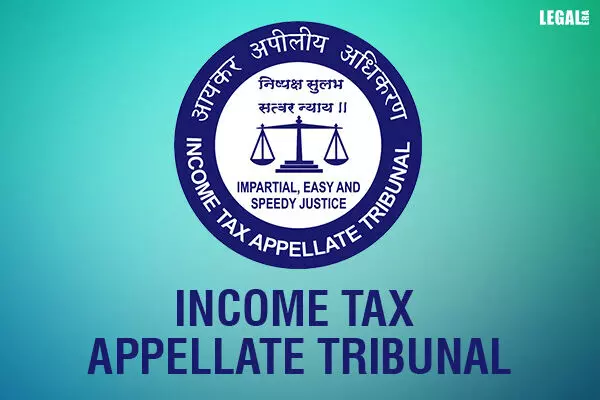- Home
- News
- Articles+
- Aerospace
- AI
- Agriculture
- Alternate Dispute Resolution
- Arbitration & Mediation
- Banking and Finance
- Bankruptcy
- Book Review
- Bribery & Corruption
- Commercial Litigation
- Competition Law
- Conference Reports
- Consumer Products
- Contract
- Corporate Governance
- Corporate Law
- Covid-19
- Cryptocurrency
- Cybersecurity
- Data Protection
- Defence
- Digital Economy
- E-commerce
- Employment Law
- Energy and Natural Resources
- Entertainment and Sports Law
- Environmental Law
- ESG
- FDI
- Food and Beverage
- Gaming
- Health Care
- IBC Diaries
- In Focus
- Inclusion & Diversity
- Insurance Law
- Intellectual Property
- International Law
- IP & Tech Era
- Know the Law
- Labour Laws
- Law & Policy and Regulation
- Litigation
- Litigation Funding
- Manufacturing
- Mergers & Acquisitions
- NFTs
- Privacy
- Private Equity
- Project Finance
- Real Estate
- Risk and Compliance
- Student Corner
- Take On Board
- Tax
- Technology Media and Telecom
- Tributes
- Viewpoint
- Zoom In
- Law Firms
- In-House
- Rankings
- E-Magazine
- Legal Era TV
- Events
- News
- Articles
- Aerospace
- AI
- Agriculture
- Alternate Dispute Resolution
- Arbitration & Mediation
- Banking and Finance
- Bankruptcy
- Book Review
- Bribery & Corruption
- Commercial Litigation
- Competition Law
- Conference Reports
- Consumer Products
- Contract
- Corporate Governance
- Corporate Law
- Covid-19
- Cryptocurrency
- Cybersecurity
- Data Protection
- Defence
- Digital Economy
- E-commerce
- Employment Law
- Energy and Natural Resources
- Entertainment and Sports Law
- Environmental Law
- ESG
- FDI
- Food and Beverage
- Gaming
- Health Care
- IBC Diaries
- In Focus
- Inclusion & Diversity
- Insurance Law
- Intellectual Property
- International Law
- IP & Tech Era
- Know the Law
- Labour Laws
- Law & Policy and Regulation
- Litigation
- Litigation Funding
- Manufacturing
- Mergers & Acquisitions
- NFTs
- Privacy
- Private Equity
- Project Finance
- Real Estate
- Risk and Compliance
- Student Corner
- Take On Board
- Tax
- Technology Media and Telecom
- Tributes
- Viewpoint
- Zoom In
- Law Firms
- In-House
- Rankings
- E-Magazine
- Legal Era TV
- Events
ITAT Sets Aside Penalty Imposed Against Taj Exim International in light of ‘De Novo’ Assessment Order

ITAT Sets Aside Penalty Imposed Against Taj Exim International in light of ‘De Novo’ Assessment Order
The Income Tax Appellate Tribunal (ITAT), Mumbai, by its division bench of G.S. Pannu (President) and Sandeep Singh Karhail (Judicial Member) while adjudicating an appeal filed in the matter of M/s. Taj Exim International Ltd. vs. DY. Commissioner of Income Tax, has held, since the matter has already been restored to the file of the Assessing Officer (AO) for de novo assessment by the co-ordinate bench of the Tribunal in the quantum appeal, the penalty levied under section 271(1)(c) of the Income Tax Act, 1961 (for short ‘the Act’) cannot survive at this stage.
In the present case, the assessee, engaged in the manufacturing and export of garments and fabrics, filed its income tax return declaring a total income of Rs. 59,56,779. The AO assessed the total income of the assessee at Rs. 2,36,26,410 after making addition on account of rejection of deduction under section 80IB of the Act, depreciation on let out property, excess claim of depreciation on plant & machinery and building, and late payment of PS/Employees' State Insurance Corporation (ESIC).
The assessee appealed to the Commissioner of Income Tax (Appeals) [CIT(A)], who dismissed the appeal.
However, in the quantum appeal, the Tribunal set aside the order of the CIT(A) and remanded the matter back to the AO for a fresh assessment after affording an opportunity to the assessee. Further, the AO had levied a penalty of Rs.58,31,000 under section 271(1)(c) of the Income Tax Act, alleging that the assessee had furnished inaccurate particulars of its income.
The assessee had appealed to the CIT(A), who had granted partial relief to the assessee by reducing the penalty imposed on the issue of late payment of PS/ESIC.
The only grievance of the assessee, in the present appeal, was against the penalty levied under section 271(1)(c) of the Act.
The ITAT held that since in the quantum appeal, the coordinate bench of the Tribunal had already restored the matter to the file of the AO for de novo assessment, the penalty as levied under section 271(1)(c) of the Act, at this stage, does not survive and therefore was set aside.
However, the bench clarified that the AO shall be at liberty to take a fresh call on the levy of penalty, as per law, in consonance with the fresh assessment as and when framed. Accordingly, the bench allowed the appeal for statistical purposes.


